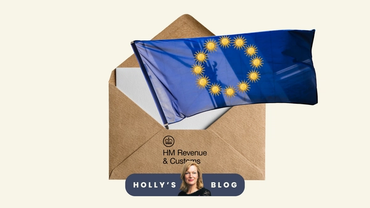Habits and some cost-saving tips
28 April, 2023

Habits can be a blessing and a curse. It takes about a year to build a good one and 3 seconds to build a bad one!
One of my worst and most prolonged habits was the in-built reflex to reach for a Silk Cut as soon as I even sniffed wine or saw a pub in my 20s (don’t be shocked Mum! I know that packet of Polos stashed in the car hid it, really!). But it’s not just the chocolate/fags/booze habits. We also have money habits and this blog shares a few simple ideas to build good ones.
For me, one of the most interesting uses of technology is its ability to do things for us which we can program in advance. And our sensible brains can set this up before our weaker chimp-y brains wimp out in the moment.
Good money habits
Self-employed people can set up a direct debit into a pension. Or even get going by paying a small amount – maybe even a small 2% for example - of every invoice into a pension, on receipt. Salaried people can ‘pay yourself first’ and set up a direct debit into a savings account on payday, removing money from easy reach. If you get a pay rise, you can increase your pension contributions by 1% on the basis you can’t miss what you’ve never had. And all savers can set up regular investments into an ISA.
This money habit has lots of upsides. A) It’s sensible! B) You smooth out the entry price, so removing the risk of buying in at the ‘worst time’. And C) It can be the cheapest way to go about it.
One lesser-known aspect of many investment platforms is the lower transaction fees they charge for regular monthly investments, and also that some of them cap annual fees for shares, ‘Exchange Traded Funds’, and investment trusts.
How to get free dealing
Many platforms have reduced dealing charges for regular investments, with providers such as AJ Bell, Fidelity and Barclays charging between £1 - £1.50 per transaction compared to their normal dealing fees between £6 - £10. Some even scrap fees for regular investing altogether; Hargreaves Lansdown and interactive investor have no dealing fees at all for regular investing.
And here’s another wheeze...
If you build up a portfolio of investment trusts (more interesting stuff and some spice) and exchange traded funds (pleasingly boring low-cost collections of investments which track an index), some platforms will cap their annual fees.
Interactive Investor have a fixed £ fee anyway (typically about £120 a year for an ISA) so this applies whatever you buy. But Hargreaves Lansdown and AJ Bell cap their charges at £45 a year and £42 a year for ISAs if you only have shares, ETFS or investment trusts (jargon buster – these are collectively known as ‘listed securities’ which is industry lingo for something you buy or sell on a stock exchange).
We ran some scenarios to look at the cheapest options if you set up regular investments in a £50,000 ISA and in a £300,000 pension, and use ‘listed securities’ only.
For the ISA, the cheapest options were Hargreaves Lansdown, Freetrade then Interactive Investor.
You can find out more and see the cheapest pension options here.
I think it’s very interesting food for thought and combines a sensible habit with a compelling cost structure. Hmmmm.
Less a habit and more a thought groove
When us Gen X-ers were young and dinosaurs roamed the Earth, we were taught what good looked like. We grew up knowing that success was wearing spotless white jeans like Liz Hurley; saying we didn’t like Mateus Rose; ordering a cappuccino and paying off the mortgage.
Paying off the mortgage has become an unchallenged financial goal and dream. My home is my castle. MY castle.
I see and feel the pull of that. But I’m going to challenge it anyway. Here’s an example. Let’s say you’re lucky enough to still have a fixed mortgage of maybe 2%. And you can pay off £8,000. You’ll save £160ish in interest a year. If you put that £8,000 into a pension as a basic-rate taxpayer, you’ll ‘make’ another £2,000 in the Government top-up. And that £8,000 will automatically become £10,000.
I know, I know, before you all start shouting. The actuaries will talk about compounding and timeframes and risk and the tax you’d pay on 75% of your pension when you take it and the fact that next year’s fix might be nearer 3.5% and blahdiblahblah BUT the point is that from a purely financial perspective, paying off your mortgage should not be seen as an unchallenged holy grail. It needs to be weighed up against other alternatives.
Could you save the money in a 1 year savings account instead, make more and retain flexibility? Could you invest it? Put it in a pension? Get rid of more expensive debt?
And for younger readers, the same thought process can apply to student debt which is actually more like deferred tax and less like debt. Rushing to pay this back is not always the best thing to do with your money.
That’s it for this week, folks. I’ll leave you with some reading for the long weekend. We ask what the outlook for tech stocks is in 2023; there’s a new piece for anyone worried about the finance sector in light of recent banking woes; Invesco take a deep dive into the Nasdaq (trivia point: 58 of the 100 companies in the Nasdaq 100 are filing patents in areas such as artificial intelligence (AI), clean energy and blockchain) or read up on a ‘ready-made’ responsible investment option.
Have a super lovely weekend everyone. I might be embracing the odd bad habit 😈
Holly

Want to get Holly's weekly blog straight to your inbox?
Already have an account? Login








